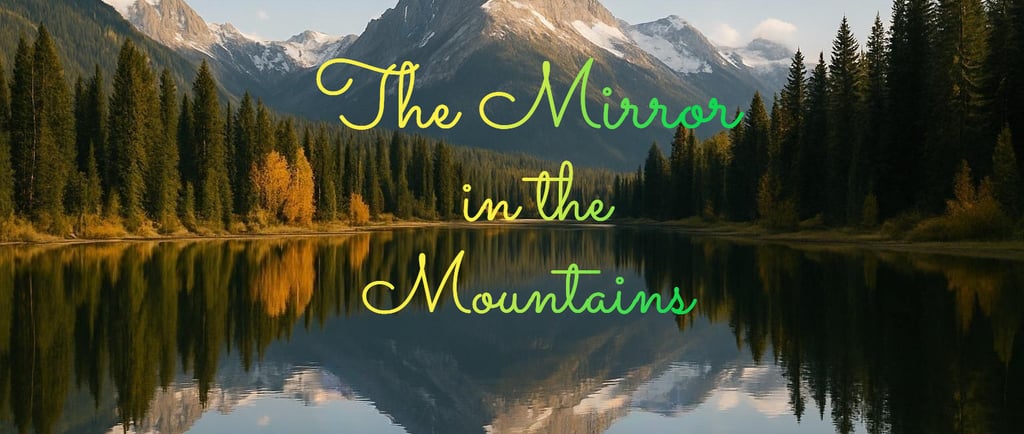The Mirror in the Mountains
We like to think people move to the mountains for peace. But peace is rarely the full story.
NEWSLETTER
10/12/20252 min read


The Mirror in the Mountains
It’s easy to say people move to the mountains for the beauty, the quiet, or the slower pace of life. But for many, the reasons run much deeper and more psychological than that. The mountains don’t just soothe the senses; they speak to something inside us that craves both belonging and separation.
A Place to Breathe, or to Hide
Some find in the mountains a natural reset, a place where the mind can quiet and the body can rest. Attention Restoration Theory suggests that nature’s gentle rhythms, wind through trees, flowing water, shifting light, restore focus and calm the nervous system. Yet for others, the same distance that restores can also protect. The mountains become a refuge from people, noise, and the expectations that never quite fit.
Up here, solitude isn’t loneliness, it’s oxygen. Until it isn’t.
The Seasons Teach Time
Unlike the valley just fifteen minutes away, mountain life unfolds through four distinct seasons, real ones that demand adjustment and participation. Snow, thaw, bloom, and dry heat aren’t just weather patterns, they’re markers of time that remind people they’re living with nature, not above it.
That rhythm offers a grounding the flatlands often blur. Down below, weeks can vanish into sameness. Up here, the changing air, color, and light quietly insist that time is moving, life is cycling, and we’re part of something larger than our routines.
The Comfort of Distance
Mountain living attracts those who value space, autonomy, and simplicity. But that distance can reveal what’s unresolved. Some come because they long for connection, others because they’ve been hurt by it. And yet, when crisis comes, wildfire, flood, or loss, the community shows its heart. Neighbors step forward, lend tools, open homes, and share food.
That’s the paradox, a neighborly disconnect held together by the moments that matter most. People may live privately, but they show up when it counts.
The Landscape Within
For some, the mountain view is also an echo of somewhere else, a childhood surrounded by lush trees or endless green. When the slopes turn brown and brittle in summer, that longing for living color is more than nostalgia, it’s emotional continuity, a deep memory of abundance that shaped how the soul feels at home.
Reflection Over Escape
Maybe that’s what keeps the mountains sacred, they don’t promise perfection, only perspective. They teach us to face both our comfort and our discomfort, our need for others and our need to be alone. Whether you come for healing, freedom, or quiet, the mountains offer more than scenery.
They offer reflection.
Connect
Stay informed with local community announcements
Engage!
Share!
© 2024. All rights reserved.
For updates about what's going on @ 38 Bulletin... Subscribe!



